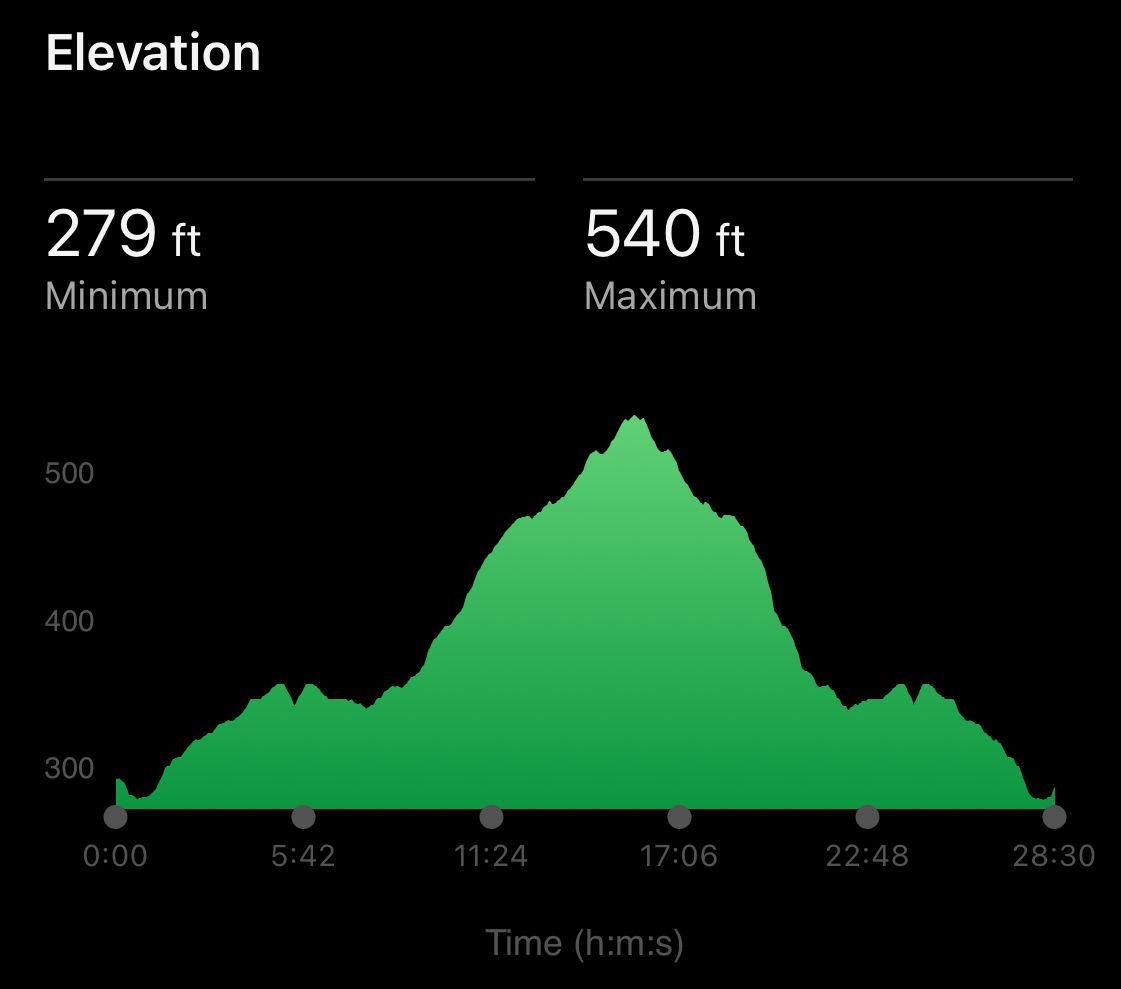Climbing hills
My daughter and I have been perched on a real hill for the past week, soaking up views to die for. We’ve been living mostly-off-grid in a glamping pod on a hill outside Penzance; if you’re thinking that sounds like hard-core back-to-nature stuff, I’ll come clean. The pod included underfloor heating, a hot shower, fully-equipped kitchen and a private hot tub, so we weren’t exactly roughing it. I did however keep up my daily 3 mile running streak (of course), despite the fact that the run from the pod in every direction looked like this:

Hell for the first 15 minutes, followed by blissful ease for the second 15 minutes as I coasted gently downhill. After 7 days, I’m aching for some flat monotony.
Back to those metaphorical hills I mentioned: the first hill I’ll be climbing is the conundrum of how to juggle work during the school holidays with a nearly-teen who is too old for holiday camps and too ‘meh’ about traditional sports to agree to any organised multi-day activities. If Kent offered a 6-week K-pop dance bootcamp, she’d have signed herself up yesterday. But since K-pop hasn’t really landed in Kent yet, the school holidays will instead offer the chance to declutter her room (again), make simple meals independently and wear an even bigger patch of lawn out choreographing her dance routines outside while I crack on with work. I’m fully ascribing to the ‘boredom breeds creativity’ philosophy (for her, not me). If you’ve got caring responsibilities, how are you managing these alongside work this summer?
For my second hill, I’m already out of the starting blocks and on the lower slopes. It’s a longer-term endeavour that I started planning in earnest just as late spring morphed into the summer-that-has-not-yet-materialised (unless 2 sunny days out of 7 in Cornwall count as summer). My big project? Writing business book #2. My first one was about time at work; this second one will be about freedom at work and it will also be published by Practical Inspiration Publishing. The working title and subtitle are …. drum roll please… People Glue: hold onto your best people by letting go, and here’s the short overview I’m sharing with CEOs and COOs I’m interviewing:
There are multiple business benefits of holding onto talented employees that you’ve likely invested in. But how do you create ‘sticky’ organisations that persuade your most valued employees to stay?
You give them freedom.
In People Glue, Helen unpicks what ‘freedom’ looks like today for both individuals and employers, and reveals how organisations can successfully offer more of it to retain and motivate their best people.
What thoughts and reactions does this spark in you? What would you want to know about freedom at work as an individual thinking about your own role and career? As a manager responding to the ambitions and needs of your team members? As a leader figuring out how to get the best out of your workforce in the coming year and beyond? Every comment and conversation I have with people about the book helps me shape its structure and content, so please do pop me an email with your thoughts, however brief. I promise to reply.
If my daily run in Cornwall looked like a classic up-then-down peak, then writing a book is, in my experience, a different kind of hill to climb. More like twin peaks really. There’s the long slog of planning, researching, writing and editing the manuscript, culminating in the celebratory first peak when the proofs head off to the printer. But it’s not job done or the ease of the downhill glide. An even higher and longer ascent looms – up the ‘getting People Glue out there’ hill. Full-on launch planning, then a 3 month or so sprint to make the most of post-launch interest, followed by a steady marathon of interviews, articles and speaking engagements to spread the word through as many relevant channels as possible. All the time hopefully working with my own clients to help them retained valued talent by offering more, and more meaningful, freedom in a win-win arrangement for the business and the bright sparks that work there.
Here I confess a guilty secret: I’m far more energised by running up the ‘writing’ hill than the ‘marketing’ hill. If I could lob the book over the latter with a cheery ‘there you go’, I would (don’t tell my lovely publisher that). But I get that the marketing is as much a part of helping people to access the book’s ideas and advice as the writing of it, so I am fully prepared to go the distance and put my best ASICs-clad-foot forward. I may hit heavy-going along the way; I will definitely huff and puff at certain points and I will absolutely need a support team encouraging me and People Glue on.
If you’re up for supporting People Glue’s launch when the time comes - by helping to spread the word on socials, buying a copy or two, coming to the launch, inviting me to talk to your leadership or HR teams, connecting me with a media opportunity – whatever works for you - then please click here and I’ll come back to you later to talk specifics. And thank you, in advance.
If you’ve been climbing a hill lately at work or at home and have reached a peak, then congratulations. If you’re still mid-slog, then let me know if I can support you in any way. Either way, I hope summer finally pitches up when you pause to catch your breath and enjoy the view, and that you feel proud of your hard-earned progress.
My daughter, who has been reading this over my shoulder, helpfully suggests I should be listening to Kate Bush’s ‘Running up that hill’ to keep me pepped up and focused book-wise over the coming months. Since I’ve endured endless school runs of late listening to Straykids, BTS, BlackPink, ITZY and Aesp and am inches away from peak K-pop saturation, I’m inclined to agree with her.
Enjoyed reading this? Share it with others
Recent blogs









